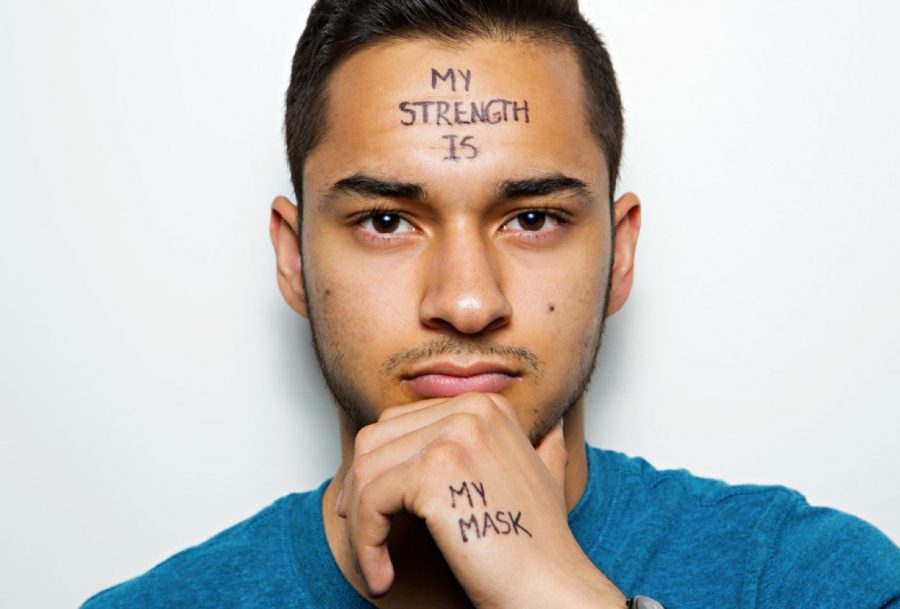Modern “Masculinity” Has Lost Its Value
I’m long done trying to be “man enough,” so I write this as a man. Masculinity isn’t harmful in its raw unaltered form; however, the common man of today must perform on a public stage with beams of light illuminating every inch of his presumed manliness. In character, he proclaims something as “gay,” puffs out his chest when he feels threatened, scoffs at an emotional piece of art or literature. He might make a derogatory joke or even gesture inappropriately. Acceptance requires him to adopt a disgust for the feminine qualities, to embody the true characteristics of manliness: self-reliance, bravery, toughness, strength, confidence, dominance, aggressiveness. He must follow the script.
Offstage he needs to feel. Drowning himself in dramatic art, arousing media, emotive music, intoxicating literature, he becomes a ravenous monster of human emotion. He chases sentiment any way he can to cope with a concealed reality. He craves to express himself. It is easy for him to share his opinions on sports, politics, or women, but revealing his insecurities, struggles, vulnerabilities, or fear of failure paralyzes him. So, he feasts alone.
Much of a man’s identity is wrapped up in feeling manly enough, and, unfortunately, today’s traditional view of manliness is colored with commonplace intolerance, harmful dominance, the objectification of women, domestic violence and abuse, and habitual sexist and derogatory behavior. A theatrical facade that wreaks havoc on both genders. He only acts according to his script. There is nothing inherently wrong with being a man; all men shouldn’t be considered “toxic,” and men shouldn’t stop being men, but a close look at today’s destructive interpretation of masculinity and a balance of gender-associated characteristics is necessary.
Society has formed the molds which men and women are supposed to fill, upholding the stereotypic assumptions that men should be strong and agentic, while women should be warm and caring. He conquers and achieves, takes care of the finances, works on the car, does home repairs. She nurtures, takes care of children, does the cleaning, the cooking, tends and mends relationships. These roles are subconsciously communicated to young children —sculpting them until they are a perfect fit for their casts of manhood and womanhood. A man grapples in the dark with his feelings. A woman wears an embellished cloak of docility buttoned up so tight it must be worn even in her most forgetful moments.
Reforming the skewed definition of masculinity begins by ripping out its roots and planting something new. Reshaping the cultural assumptions of masculinity flowers by acknowledgment—when a community of men is courageous enough to lay bare the unflattering complexion of the status quo. Change happens when we rewrite the script. Parents shouldn’t teach boys how to be strong and girls to be pretty, but should teach every child how to be a good person—a complete cultural upheaval born from manliness itself.
Being a man means using the same qualities that “make a man” to examine yourself and redefine masculinity. Are you brave enough to be vulnerable? Strong enough to be sensitive? Can you cry like a man? Are you confident enough to respect and listen to the women in your life? Tough enough tell another man to stop the “locker room talk?” Being a man means embracing suppressed feminine qualities. Being a man means learning from women who embody those qualities. Being a man means diving headfirst into your shame, guilt or joy, crying when the protagonist dies, singing aloud when your favorite song comes on, reaching out to a friend when you need support, speaking only after others have shared, standing with those who are struggling, inhabiting vulnerability, being an example for others to follow. There is no excuse for acting manly. Not if you’re a man, that is.

Ben Zivsak is also known as the “Cool Editor,” but not as cool as Matty of course. He has been with the paper since sophomore year and enjoys nature,...






Jasmine!!!!!! • Nov 23, 2019 at 9:41 pm
I LOVE THIS.
Potato Guy • Nov 11, 2019 at 9:38 am
Hello there, I am a student at CHS and while I think there are some good ideas going into this change like ending the bullying of nominating people as a joke, but I think there are some major flaws too. This was the first year Chelsea changed the Homecoming Queen Award so obviously some things are going to not be as good as they could be. I did not agree with the fact that almost all of the students who were nominees were on student council. I don’t think this would have been the case if it was still the Homecomiung Queen. My friend and I counted during the pep rally and 14 out of the 17 people nominated are on student council currently. That is an outrageous amount. I Don’t think it is right for the people who made the change to the system to be able to win all of the votes. I feel like if you are not a part of student council then your chances of even getting nominated are very slim. And I heard from a friend that everyone who was even thinking about voting against it was being pressured into voting yes. Is that what we want our student council doing? Our supposed “Leaders of the school” showing others that it is okay to pressure someone into something they don’t stand for? That isn’t what I want my high school to look like.